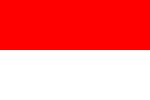Water Politics in Sukaringin Village
Politik Air Bersih di Desa Sukaringin
Abstract
This paper will examine the politics of clean water management, an overview of the scarcity of clean water quality in Kedungringin Village, Sukawangi District, Bekasi Regency. The reason this research was conducted was because there was a problem in Kedungringin Village, namely the lack of access to clean water both in quality and quantity. Various efforts have been made by the people of Kampung Kedungringin, such as constructing boreholes with the help of benefactors. However, this is not enough to meet the needs of clean water for all residents. The role of PDAM Tirta Bhasasi in this case has not been able to reach the Kedungringin Village area because the Clean Water Pipeline is far from the location of Kedungringin Village. With these problems, this research will examine how the efforts made by PDAM Tirta Bhagasasi and the Sukaringin Village Government in meeting access to clean water needs in Kedungringin Village. The research method used in this research is a descriptive qualitative research method with a case study approach. The results of this study indicate that the efforts made by PDAM Tirta Bhagasasi in meeting the need for clean water for the people of Kampung Kedungringin have not been realized. This is because PDAM Tirta Bhagasasi is in the construction of a new clean water pipeline to the housing/cluster area in Sukaringin Village. Clean water has not been able to flow to Kedungringin Village because PDAM Tirta Bhagasasi prioritizes cluster housing areas in collaboration with developers. This means that groups of people who have money will be prioritized over groups of people who do not have money.
Downloads
References
Barnes, J. (2009). Managing the Waters of Baՙth Country: The Politics of Water Scarcity in Syria. Geopolitics, 14(3), 510–530. https://doi.org/10.1080/14650040802694117
Barry, M., & Hughes, J. M. (2008). Talking Dirty — The Politics of Clean Water and Sanitation. New England Journal of Medicine, 359(8), 784–787. https://doi.org/10.1056/nejmp0804650
Bekasi, B. (2020). Jumlah Penduduk Kecamatan Sukawangi menurut Jenis Kelamin dan Desa/Kelurahan. . Bekasi: Badan Pusat Statistik.
Endaryanta, E. (2007). Politik Air di Indonesia: Penjarahan si Gedhang oleh Korporasi Aqua-Danone. Yogyakarta: Laboratorium Jurusan Ilmu Pemerintahan.
Herrera, V. (2017). Water & Politics. Mexico: UCONN.
McCarl, B. A., & Reilly, J. M. (1999, August). Water and the agricultural climate change assessment: Issues from the standpoint of agricultural economists. In Proceedings of American water resources association special conference on potential consequences of climate variability and change to water resources.
Mercer, K. L. (2018). The Politics in Water. Journal - American Water Works Association, 110(3), 2. https://doi.org/10.1002/awwa.1026
Millington, N. (2018). Producing water scarcity in São Paulo, Brazil: The 2014–2015 water crisis and the binding politics of infrastructure. Political Geography, 65, 26–34. https://doi.org/10.1016/j.polgeo.2018.04.007
Moleong, L. J. (2014). Metodologi Penelitian Kualitatif [Edisi Revisi]. Jakarta: Remaja Rosdakarya E.
Rahmawati, R., & Firman, F. (2017). Analisis Impelementasi Kebijakan Aplikasi Qlue Di Wilayah Jakarta Utara. ARISTO, 5(2), 386 - 404. doi: https://doi.org/10.24269/ars.v5i2.542
Sihotang, J. (2018). Penuhi Cakupan Air Bersih, PDAM Lakukan Kerjasama Pihak Ketiga . Retrieved from tirtabhagasasi.co.id:: https://tirtabhagasasi.co.id/penuhi-cakupan-air-bersih-pdam-lakukan-kerjasama-pihak-ketiga/
Stern, N. (2014). The Economics of Climate Change: The Stern Review. Cambridge University Press.
Sugiyono. (2016). Metode Penelitian Kuantitatif, Kualitatif, dan R&D. Bandung: Alfabeta.
United Nations Trust Fund for Human Security. (2009). Human Security in Theory and Practice: An Overview of Human Security Concept and the United Nations Trust Fund for Human Security. diakses pada 19 Januari 2017 http://www.un.org/humansecurity/sites/www.un.org.humansecurity/files/humansecurity_in_theory_and_practice_english.pdf
United Nations Water. 2013. Water Security & the Global Water Agenda: A UN-Water Analytical Brief. diakses pada 16 Februari 2017 http://www.unwater.org/downloads/watersecurity_analyticalbrief.pdf
Copyright (c) 2022 Restu Rahmawati, Firman Firman

This work is licensed under a Creative Commons Attribution-NonCommercial-ShareAlike 4.0 International License.
- Authors retain copyright and grant the journal right of first publication with the work simultaneously licensed under a Creative Commons Atribusi-Non Commercial-Share Alike (CC BY-NC-SA).
- Authors are able to enter into separate, additional contractual arrangements for the non-exclusive distribution of the journal's published version of the work (e.g., post it to an institutional repository or publish it in a book), with an acknowledgement of its initial publication in this journal.
- Every publication (printed/electronic) are open access for educational purposes, research, and library. Other than the aims mentioned above, the editorial board is not responsible for copyright violation.

















